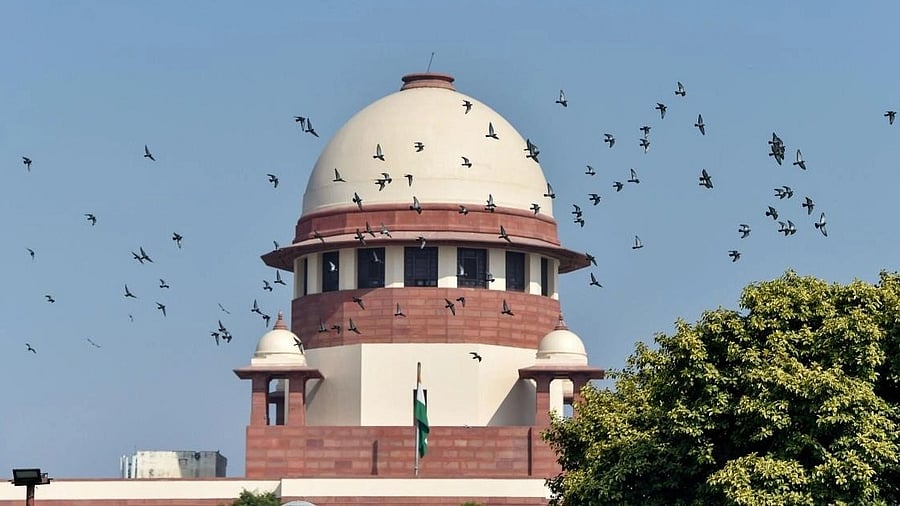
A view of the Supreme Court.
Credit: PTI Photo
New Delhi: The Supreme Court has said a High Court cannot cancel bail for the default of an advocate and without issuing notice to the accused who has been released on suspension of his appeal.
"Under no circumstances, the bail granted to an accused under sub-section 1 of Section 389 of the CrPC can be cancelled without giving a reasonable opportunity to the accused of being heard," a bench of Justices Abhay S Oka and Pankaj Mithal said.
The court explained the legal provisions while setting aside the Madras High Court's order of July 7, 2023 which cancelled the bail of the accused in a POCSO Act case, as his advocate sought four weeks adjournment to prepare for arguing the appeal.
The apex court said, "Under sub-section 1 of Section 389, while suspending the sentence of the appellant-accused who is in jail, the appellate court has to enlarge the accused on bail till the final disposal of the appeal."
It also said the second provisio to sub-section 1 of Section 389 permits the Public Prosecutor to file an application for cancellation of the bail granted under sub-section 1. The second proviso to sub-section 1 of Section 389 is on par with sub-section 2 of Section 439 of CrPC.
"Therefore, the court can even Suo Moto issue a notice calling upon the accused to show cause why the bail should not be cancelled," it said.
In the case, the bench said, unfortunately, the High Court, without even giving an opportunity of being heard to the appellant-accused on the issue of cancellation of bail, has straight away proceeded to cancel the same.
"Such approach on the part of the High Court cannot be countenanced especially when the High Court can always deal with the situation when an adjournment is sought by the advocate for the accused at the time of final hearing of the appeal on unreasonable grounds," the bench added.
The appeal against conviction filed by the appellant Purushothaman was admitted by the High Court, which on January 12, 2018, suspended the substantive sentence and ordered him to be enlarged on bail.
In a given case, the bench said, if the advocate appearing for the appellant-accused seeks adjournment on untenable and unreasonable grounds, the appellate court is well within its power to refuse the prayer for adjournment.
In such a case, one of the courses suggested by a decision of this Court in the case of 'Bani Singh v. State of UP' (1996) can always be adopted by the High Court. The High Court has a discretion to appoint an advocate to espouse the cause of the appellant when the advocate appointed by the appellant refuses to argue the appeal on unreasonable grounds, it said.
